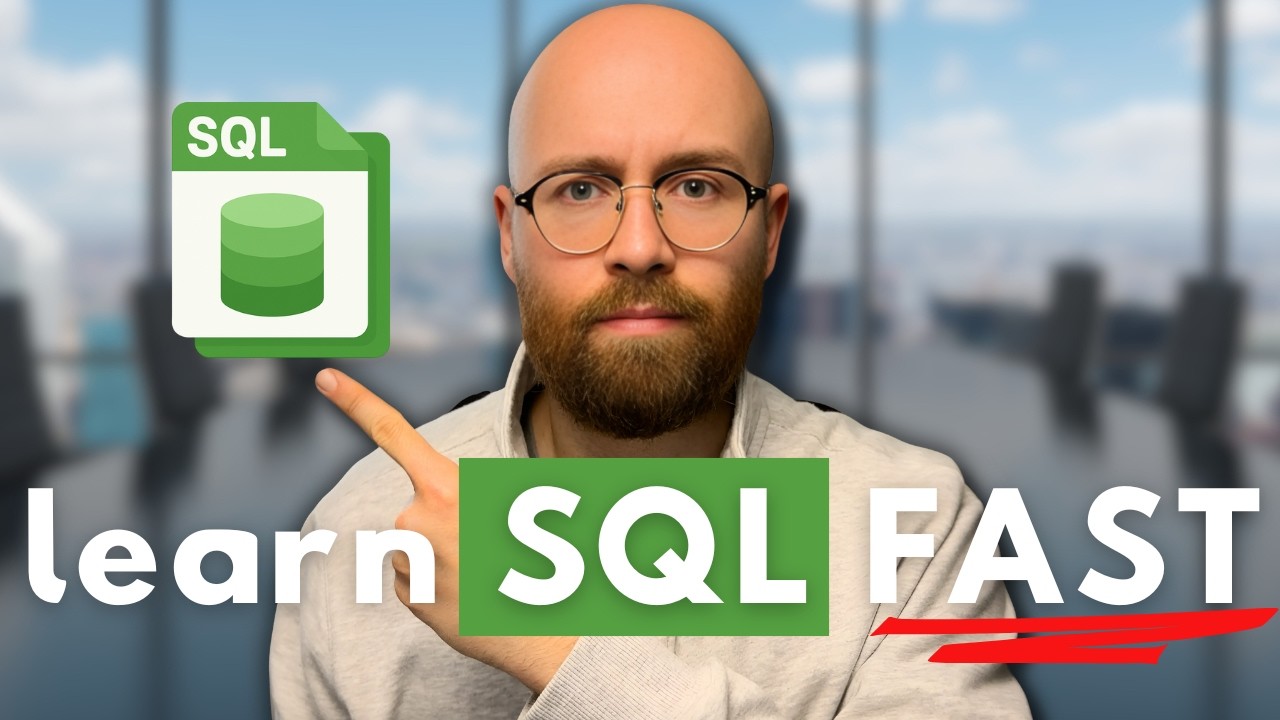The video stresses that mastering practical, real-world SQL skills—using tools like BigQuery or Postgres and working with large datasets—is essential for data engineering roles, as SQL remains foundational despite AI advancements. It recommends focusing on hands-on projects, understanding core commands, and progressing to advanced tools like dbt and Airflow through structured, project-based courses to build reliable, scalable data systems.
The video emphasizes the importance of SQL for data engineering roles, highlighting that most job postings, including high-paying ones, require proficiency in SQL and Python. It points out that SQL is foundational for working with data, powering essential processes like ETL pipelines, dashboards, and data warehouses. Despite the rise of AI, the speaker argues that real SQL skills remain crucial because AI tools can generate queries but lack understanding of schema, business context, and the ability to troubleshoot or optimize effectively. Therefore, mastering SQL is presented as a vital insurance policy for data engineers to ensure reliability and control over their data workflows.
The speaker advises against learning SQL through superficial tutorials or toy datasets, which do not prepare you for real-world scenarios. Instead, he recommends using actual tools like BigQuery, Snowflake, or Postgres, and leveraging AI tools like ChatGPT to assist with setup scripts while still understanding the underlying principles. The key is to work with real, scalable data and to practice writing production-ready queries that can handle large datasets. This approach ensures that learners develop practical skills that translate directly into professional environments, rather than just theoretical knowledge.
To effectively learn SQL, the speaker suggests focusing on hands-on practice rather than endless tutorials. He recommends structured courses, such as DataCamp’s data engineering track, which provide interactive, real-world exercises and projects. These projects include exploring London’s travel network or building data pipelines, which help learners develop skills in database design, data warehousing, and pipeline automation. The emphasis is on creating a solid foundation of core concepts and then applying them to real systems, rather than just memorizing syntax or completing small exercises.
The video introduces the “big six” SQL commands—SELECT, FROM, WHERE, GROUP BY, HAVING, and ORDER BY—as fundamental building blocks for querying data. The speaker explains how understanding these commands and their relationships is essential for effective data retrieval and manipulation. He stresses that context and efficiency are more important than syntax alone, encouraging learners to consider business requirements and query performance. Additionally, he warns against relying on toy data for practice, advocating for testing queries on large, real datasets to ensure scalability and robustness.
Finally, the speaker advocates for transforming SQL commands into practical skills by building real-world systems like ETL pipelines, data quality checks, and leveraging cloud-native features such as UDFs, streams, and data versioning. He emphasizes progressing from foundational knowledge to more advanced, cloud-based tools like dbt and Airflow, which are essential for modern data engineering workflows. Throughout, he reminds viewers that AI is an assistant, but the true expertise and decision-making come from the engineer. The video concludes by recommending structured courses like DataCamp’s certification, which provide a comprehensive, project-based learning path to land a data engineering role.
